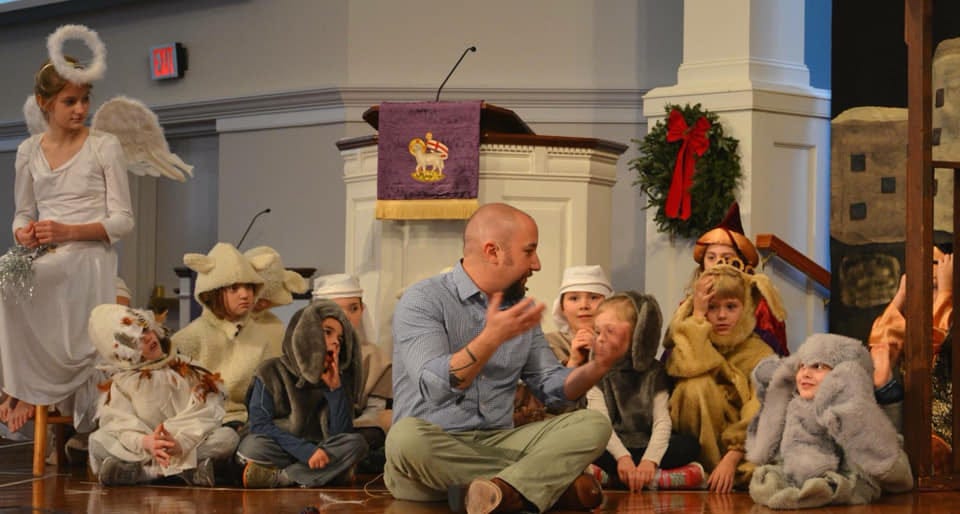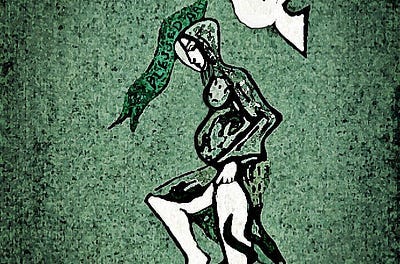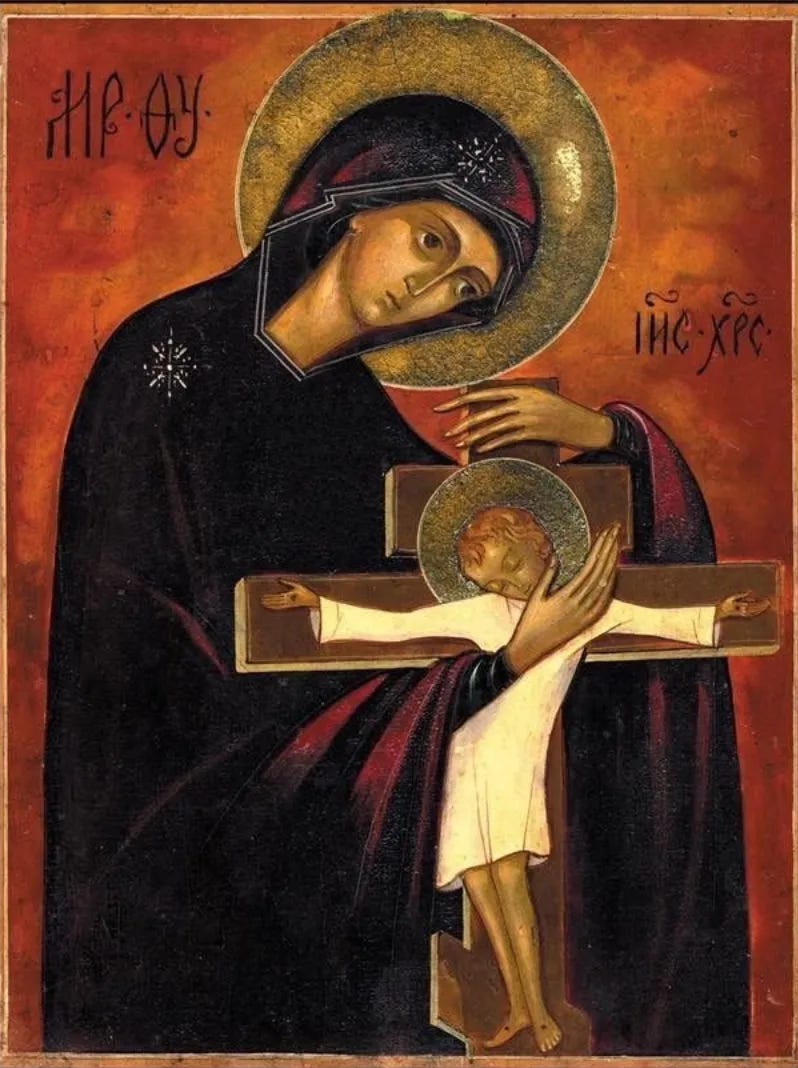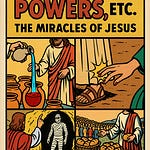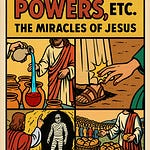Third Sunday of Advent — Daniel 3.8-25
Ten years ago, around supper time, I was in the Emergency Room, standing behind the paper curtain, holding a mother, who wasn’t much older than me, as she held her little boy, who wasn’t much older than my boys. I had gotten a call that Jack, one of our confirmands, had been taken from his bedroom by ambulance.
“Maybe he was already dead,” the caller whispered through tears.
When I got there, he was gone.
Jackʼs mom was on the bed with her arms around him and was telling him how much she loved him, how much everyone loved him. Jackʼs grandparents had their arms around her. For I donʼt know how long, I held Jackʼs hand and rubbed his hair and tried to get the words out. I tried to tell him how funny and special and alive I thought he was.
The boy’s mom wasn’t crying so much as gasping like you do when you’ve sunk all the way to the bottom of the deep end and have just come up for air. She was smoothing her boy’s cow lick with her hand. Every so often she would shush him, as though if she could just calm him down she might convince him to come back.
It was Opening Day.
While her little boy was contemplating the inconceivable, my boys and I had been watching the Nationals lose to the Braves. I still wore my red baseball cap and I still had popcorn crumbs in my sweater and mustard stains on my pants.
Which is to say, in that moment I didn’t look like pastor or a priest.
I looked like just another mourner thrown in to the fire of grief.
So when the mother got up and went into the hallway to try and get a hold of her husband and left me with her boy and when the hospital chaplain stepped in to the room and saw the hat on my head and the mustard stains on my pants and the popcorn crumbs on my clothes and the tears in my— now red— eyes, the chaplain did not think I was a pastor or a priest.
She just thought I was part of the boy’s family.
I sat on the bed where his mother had been sitting. I held his hand in my lap.
The chaplain put her hand on my shoulder and, after a few moments, she said to me:
“Everything is going to be okay; you are not alone.”
It was like she had slapped me.
“What?” I said, stunned, and gripped the boy’s hand harder in my own.
In the moment, it felt like the precise wrong thing to say.
“What did you say?”
Unfazed or unaware, she actually repeated herself:
“Everything is going to be okay; you are not alone.”
“Look,” I said not at all politely, “I’ve got the same gig as you. When there’s nothing to say, shut up and say nothing.”
To her credit, my anger did not fluster her. Nor did my reproach flummox her. And in the years since I have arrived at a sort of second naïveté about that evening in the ER. A decade of faith stretches between then and now.
I’ve outgrown the pseudo-sophistication that disguised a lack of conviction as pastoral care.
Just so, I suspect I was wrong.
Christians do not practice silence because there is nothing to say, no word from the Lord.
Christians practice silence because God has spoken so much we do not know where to start with the saying of it.
Perhaps she picked the wrong word from the Lord to speak. Maybe her timing with the speaking of it was off.Nevertheless, I was the one who was wrong. Because, of course— God has promised it— she was right, I was not alone. If Mary’s boy managed to appear in an oven half a millennia before his birth, then certainly a cold, bright ER stall was no hurdle for him.
At Christmas, the church ventures a claim far more audacious and, just so, more deeply offensive than the birth of Mary’s boy and Pilate’s victim.
Christmas is not merely the Messiah's birthday.
Christmas is the Feast of the Incarnation.
Christmas is the Nativity of God.
At Christmas, the church dares to announce a revelation; namely, the Maker of Heaven and Earth is a Jew who lived briefly, died violently, and rose unexpectedly. Mary, the Council of Ephesus decreed in the fifth century, is the Theotokos, the God-bearer. Jesus is the God-who-is-human. His finite flesh contains the infinite. Of course, this claim immediately begets the question the creed attempts to answer.
How?
How is this so?
How is it possible?
As stubbornly as it persists, how is not the best question to ask about incarnation.
Because God is the Condition that conditions all conditions, we cannot condition what God can do based upon what we take to be the givens of the world.
For example:
The dead don’t rise— that’s a given of the world.
And yet, Jesus lives with death behind him.
God is the Condition that conditions all conditions. The God who raised Israel from slavery in Egypt can resurrect Jesus from the grave.
God is the Condition that conditions all conditions; therefore, how questions are seldom the best questions to ask when it comes to God.
Rather than ask how—
How did God become man?
How can the finite contain the infinite?
How is it possible for Mary to give birth to her Maker ex nihilo?
Rather than ask how—
Advent is the perfect occasion to inquire about the alternative.
What is the opposite of incarnation?
What would be the alternative to an incarnated God?
If the Word did not take flesh, what sort of God is God?
The genuine alternative to an incarnate God would be a God who has no spatial location whatsoever. The true opposite to incarnation would be total, absolute monotheism. If God is not incarnate, then God is sheer spirit. Corporeality would be totally foreign to a God who is spirit. The defining essence of matter is that it takes up space; therefore, if God is totally non-corporeal, then there can be no spatial location of God.
Once you understand that exactly this God— the God who is sheer spirit and occupies no space— is the opposite of an incarnate God, you realize two implications.
This God— the God who is sheer spirit and occupies no space— is precisely the God in whom most Christians in fact believe.
This God— the God who is spirit and takes up no space— is incompatible with the God of the Old Testament. The God of the Hebrew Bible does have spatial location. He walks in the Garden of Eden. He has a dwelling place in the world. From the pillar of cloud by day to the pillar of fire by night, from tent to tabernacle, from temple to the holy of holies therein, the Old Testament just is a history of God’s dwelling place in the world.
"Surely the LORD is in this place, and I did not know it,” Jacob says fearfully in Beersheba, ”How awesome is this place! This is none other than the house of God, and this is the gate of heaven.”
As Michael Wyschogrod, a Jewish theologian at Yale, writes:
“Now of course [God’s dwelling in the temple] does not exclude the truth that he also dwells everywhere else. He also dwells in any part of the universe. There is no place in which God is not present. But this truth must be combined with the insistence that there is a place where God dwells and that place is Jerusalem. He dwells in Number One Har Habayit Street— Number One Temple Mount Street. It is a real dwelling and for every Jew, the sanctity of the land of Israel derives from the sanctity of Jerusalem, and the sanctity of Jerusalem derives from the sanctity of the temple, and the sanctity of the temple derives from the sanctity of the holy of holies where [still] God dwells.”
Just so, the God who is the opposite of the incarnate God— the God who is sheer spirit and takes up no space— is not the God of Israel and thus is not the one whom Jesus addresses as Father.
Of course, it’s not simply that God occupies space in the Old Testament but so does Jesus of Nazareth.
And not just there.
Jesus shows up in far more places than the scriptures.
About the same time I sat with that boy in the ER, Sayed Mussa sat in a jail cell in Kabul, Afghanistan and told a reporter about his journey from Islam to Christianity. Nine years earlier, after a bomb struck his neighbor’s home in Kabul killing seven, two foreign women arrived to dig through the rubble while gunfire flew past them in both directions.
“When I saw these women and their compassion for my people, it affected me,” he told the reporter.
“I asked people who they were and they said they are the followers of Jesus Christ.”
Shortly thereafter, Mussa met another Afghan Christian in his community. The neighbor gave him a copy of the Bible and eventually baptized him. Mussa was arrested under Sharia law after a local television studio broadcast footage of Afghans being baptized and praying in Jesus’s name. Sitting in prison and awaiting a death sentence, Mussa spoke to a reporter about his conversion to the incarnate God.
When Mussa distinguished between appreciating the Koran’s teachings but believing the Bible’s witness, a prison guard, thumbing Muslim prayer beads, stood up and asked his commander, “You want me to beat him?”
After he was arrested, Mussa confided to the reporter, prison guards beat him with sticks. At another jail, urged on by Taliban inmates, prisoners assaulted him and raped him. He recalled them shouting, “He is an infidel, he is filthy and he needs to be killed.”
Mussa confided to his interviewer that he longed to see his wife and children again and he admitted that he desired either his release or his execution. But, as terrible as the conditions were in prison (“Staying in here is like dying every minute.”), he testified that he was not alone.
“The Lord Jesus is here, in this place, with me. It’s like he’s taking up space, like just another prisoner.”
“Oh, how foolish you are,” the Risen Jesus gripes to the disciples on Easter, “and how slow of heart you are to believe…all of the Bible is about me.”
That is, it’s not just that God became incarnate in Jesus Christ; it’s that there are incarnations of Mary’s son in Mary’s own scriptures.
For instance—
When the Lord beckons Moses to the Burning Bush, the Book of Exodus reports that “There the Angel of the Lord appeared to Moses in a flame of fire out of a bush.”
Angel of the Lord with a capital A.
This Angel is an other from the Lord but related to the Lord prepositionally, “of the Lord.” But— pay attention— when Moses responds to the Angel’s summons, it turns out to be God who speaks to Moses out of the Burning Bush.
Is this Angel of the Lord another than God?
Or God?
Straightforwardly, in the scriptures he is both.
Or, for example, the Binding of Isaac in the Book of Genesis. Abraham is about to offer up his promised son as a sacrifice to God. Just as Abraham is about to plunge his blade into his boy’s throat, “the Angel of the Lord called out to Abraham out of heaven.” After Abraham answers the Angel of the Lord, the Angel replies initially in the third person, “Now I know that you fear God…”
Next—
In the second clause of the very same sentence, the Angel shifts to the first person, “Now I know that you fear God since you have not withheld your son…from me.”
There are incarnations of Mary’s boy in Mary’s own Bible.
“In the beginning was the Word,” declares the Gospel of John’s nativity, “and the Word was with God, and the Word was God.” Both one who is other than God and also one who is identical with God and is God’s speech-act. What the Gospel of John calls the Logos, the Old Testament calls the Angel of the Lord.
But also, alternatively, the Old Testament refers to this figure who is both other than God but likewise identical with God the Shekinah. The Shekinah is the glory of God which inhabits the holy of holies in the temple without simultaneously displacing God from his heaven. The Shekinah is the one on the cherubim throne to whom Israel directs her prayers and sacrifices even as God the Father is enthroned in heaven.
The Shekinah is the incarnation of God settles within the life of God’s People.
And so, the Jewish aggadah claims that when God redeemed Israel from exile in Babylon, thereby returning the Shekinah to the temple, “He would rescue himself.”
Once again—
It’s as straightforward as it is astonishing.
Captive in Babylon, Israel spoke of Yahweh as both the Lord who would redeem them and as a hostage to be included in the rescue.
Among those Jewish exiles in Babylon are Shadrach, Meshach, and Abednego. Conscripted into the civil service under Nebuchadnezzar, the pagan King of Babylon, they’re given new names that pay homage to Babylon’s pagan gods.
Shadrach (his Hebrew name had been Hananiah) is named for the pagan god of the moon.
Meschach (his Hebrew name had been Mishael) is named for the pagan god, Aku.
And Abednego (his Hebrew name had been Azariah) is named for the pagan god of wisdom.
For a Jew bound to the first commandment, to so carry the name of a pagan god is to expect that the true God has forsaken you.
In the story, Shadrach, Meshach, and Abednego are denounced for refusing to submit to the gods of Babylon and, by implication, for refusing to submit to the authority of Nebuchadnezzar. So Nebuchadnezzar orders the three exiles gagged, bound, and cast into a fiery furnace but not before the king instructs his men to crank the oven up to seven times its normal heat, and seven— you should note the surprising clue— is the biblical number for perfection or completeness and, thus, it’s a number that foreshadows the presence of God. The furnace gets so hot that the heat obliterates the guards who come close enough to the fire to toss the prisoners inside but not Shadrach, Meshach, and Abednego.
According to Daniel, King Nebuchadnezzar and his courtiers can see Shadrach, Meshach, and Abednego in the fiery furnace, walking around, unbound and unburned.
What’s more surprising, the bystanders report seeing a fourth person there in the fire.
A fourth person.
One who is both God and human.
Even before he is Mary’s in utero, Mary’s boy is present in Mary’s Bible.
And not just in the scriptures— the Lord Jesus shows up, takes up space, and is present with his people when they are in extremis.
The Shekinah shows up not just among and in the people of Israel.
The Shekinah shows up as an individual Israelite.
“The fourth has the appearance of a son of God,” the counselor reports to Nebuchadnezzar. The story in Daniel ends with a typical Old Testament flourish when King Nebuchadnezzar, having brought Shadrach, Meshach, and Abednego out of the fire, unscathed, throws off his former affections and declares: “…there is no other god like this Son of God!”
It’s not until Christmas that we discover King Nebuchadnezzar was even more correct than he knew.
As Daniel Boyarin, a Jewish theologian at UC-Berkley, writes:
“The theology of the Gospels, far from being a radical innovation with Israelite religious tradition, is a highly conservative return to the very most ancient moments within that tradition, moments that had been largely suppressed in the meantime— but not entirely. The ideas about God that we identify as Christian are not innovations but may be deeply connected with some of the most ancient of Israelite ideas about God. These ideas at the very least go back to an entirely plausible reading of Daniel and thus to the second century B.C. at the latest. They may even be a whole lot older.”
“And the Shekinah became flesh and lived among us…”
On Thursday evening, shortly after learning he was terminal with cancer, I visited a parishioner and his partner in the hospital. I knelt by his bed for a while and I held his hand and I tried to help her encourage him.
Before I left, I stood up. I put my arm around Pam. And I held Steve’s bruised and bandaged hand, and I prayed for the Holy Spirit to help him die well, tethered to the promise of resurrection.
All together we prayed.
Pam and Steve and me and…the Lord Jesus.
There were four of us in room 492.
“For wherever two or three are gathered together in my name, there I AM.”
Jesus promises.
We have to be conditioned by the superstitions of a secular age not to take that statement straight up— as literally the gospel truth.
It’s no spiritual metaphor.
It’s as sure and certain as math.
1+1 or 1+2 = 4
Two or three amount to at least a fourth.
“There is no other god like this Son of God!”
“The Lord Jesus is here, in this place, with me. It’s like he’s taking up space, like just another prisoner.”
All those years ago in the ER, after the chaplain learned my name and my line of work, we spoke briefly about the funeral service I’d lead for the boy.
She ran a hand through her gray hair and nodded gravely.
“My advice?” she offered, “If you can’t make it happy, make it beautiful.”
I must’ve looked like I didn’t follow her because she repeated herself.
“If you can’t make it happy, make it beautiful.”
And then she added, “Give them Jesus. You can’t take away their grief, but you can give them company. Give them Jesus so they won’t have to endure it alone. Give them Jesus— hallow their place of suffering.”
Traditionally, the Third Sunday of Advent features John the Baptist, the Forerunner and Friend of the Bridegroom, who preaches repentance and baptizes in the Jordan River. The ancient church fathers all taught that Jesus was baptized not to wash away Jesus’s sins but to sanctify the waters for own washings. Likewise, Jesus was tempted not to prove his sinlessness but to consecrate our places of tribulation. And Jesus died not to satisfy the Father’s wrath but to make death no longer an enemy we need fear.
“Nothing from his birth to his death happens to him, the Word,” Chris Green writes, “but what his Father wants to happen differently for us.”
Just so, Mary’s boy shows up in Mary’s Bible.
Jesus accompanies Shadrach, Meshach, and Abednego into the fire; so that, we will know there is no crucible of fear or heartache, there is no place of pain or anguish, that is vacant.
Each is as occupied as the Burning Bush or Mary’s belly.
The true God takes up space.
The Shekinah is a squatter who dwells in our suffering.
Until he comes again and the sea is no more— mourning and crying and pain no more— the Lord cannot make everything happy. But he can make all things beautiful. After all, God is Truth, Goodness, and Beauty. And in Jesus Christ, God is determined to add himself to every ugly instance of our lives.
Incarnation continues.
So whatever scars and singe marks life has given you this week, come to the table and I’ll give you Jesus.




